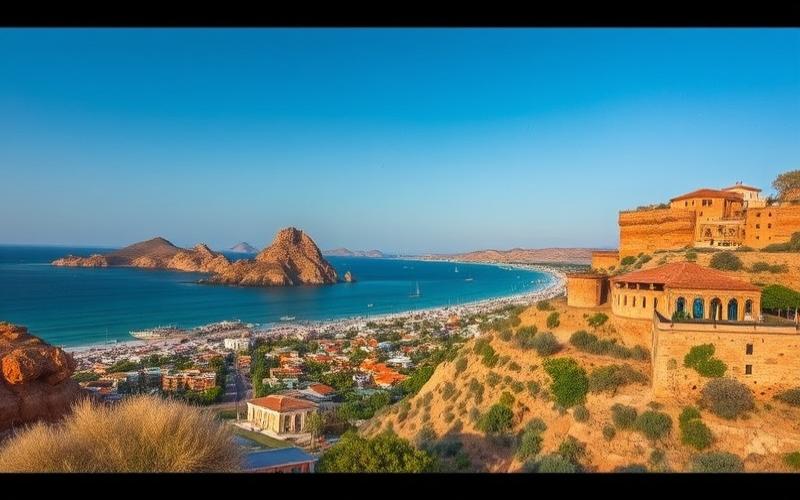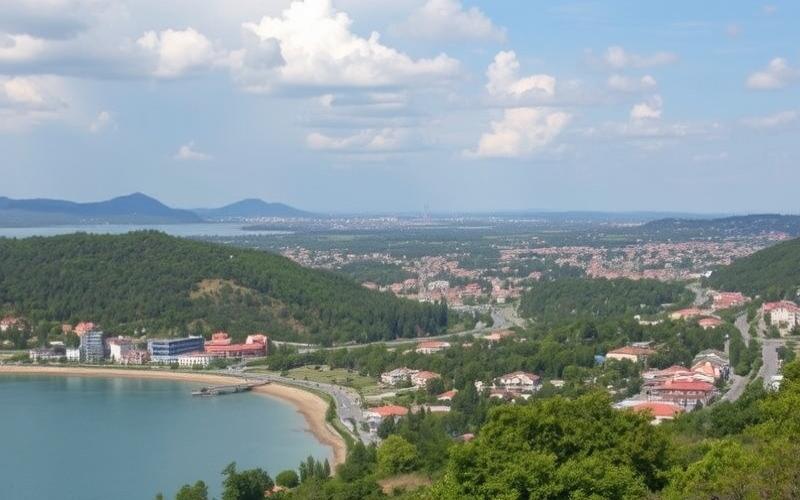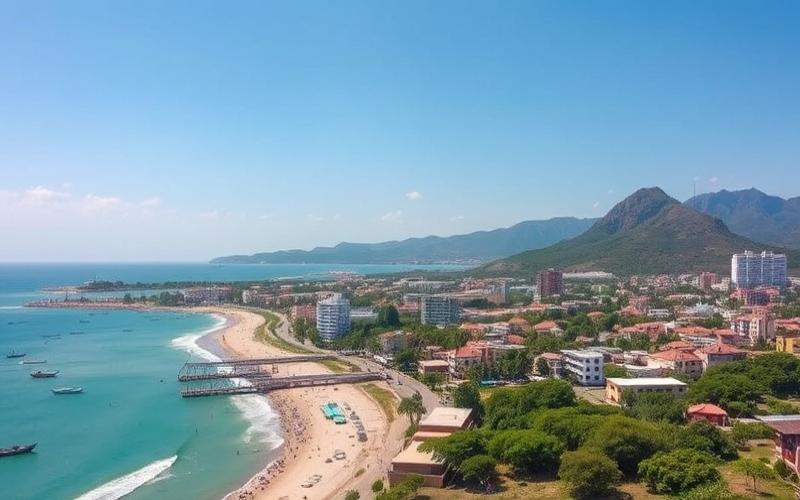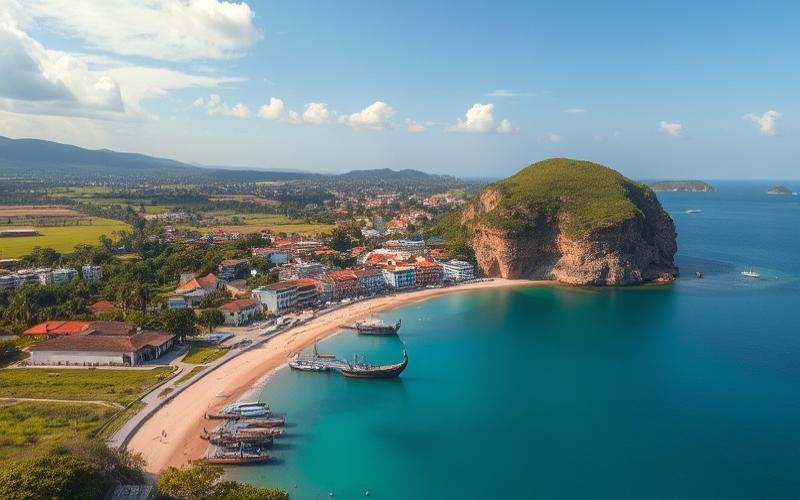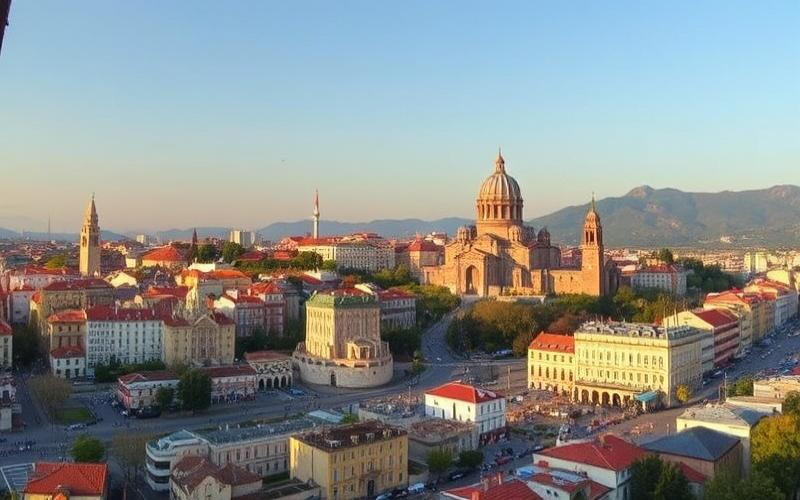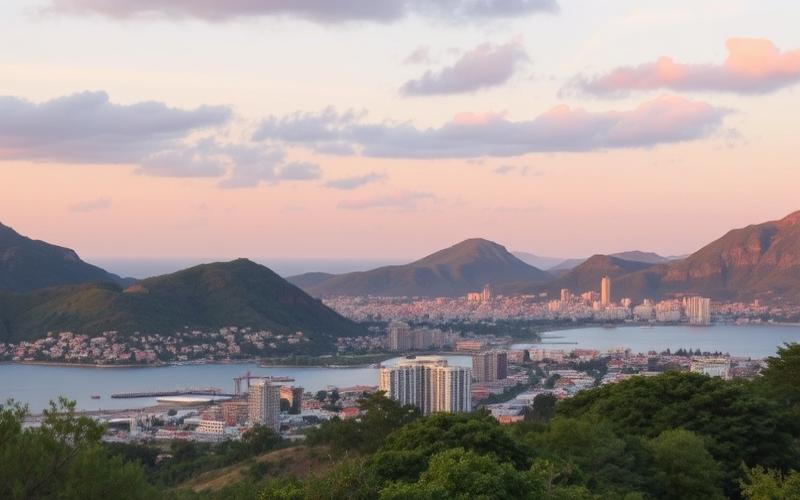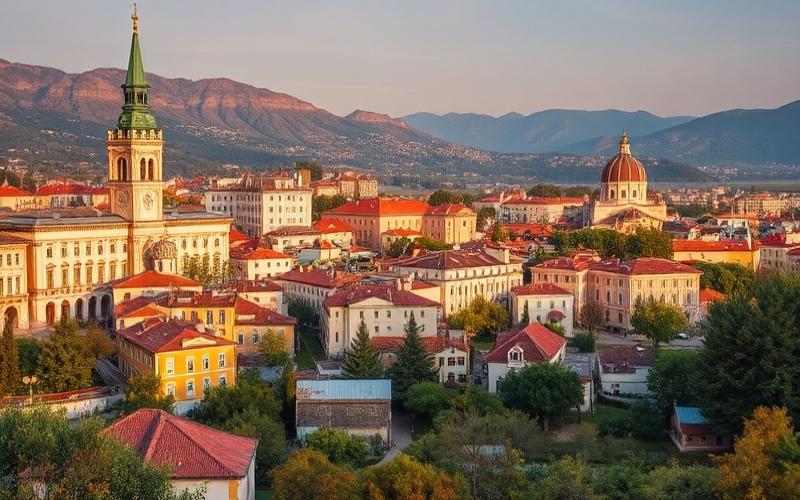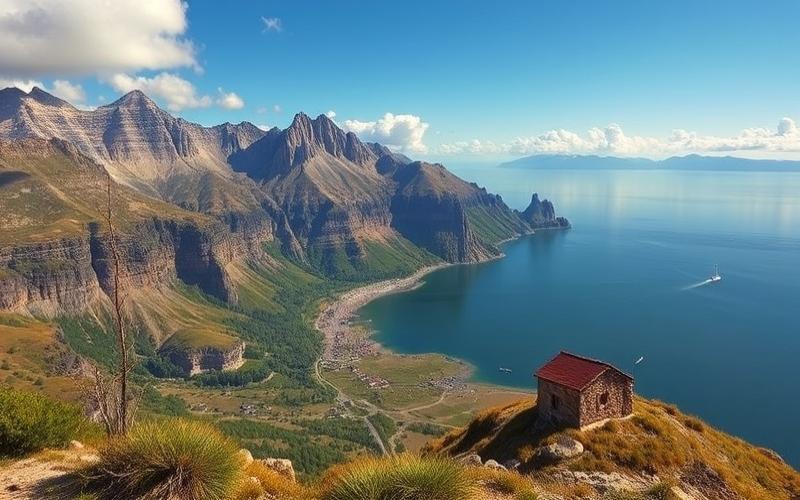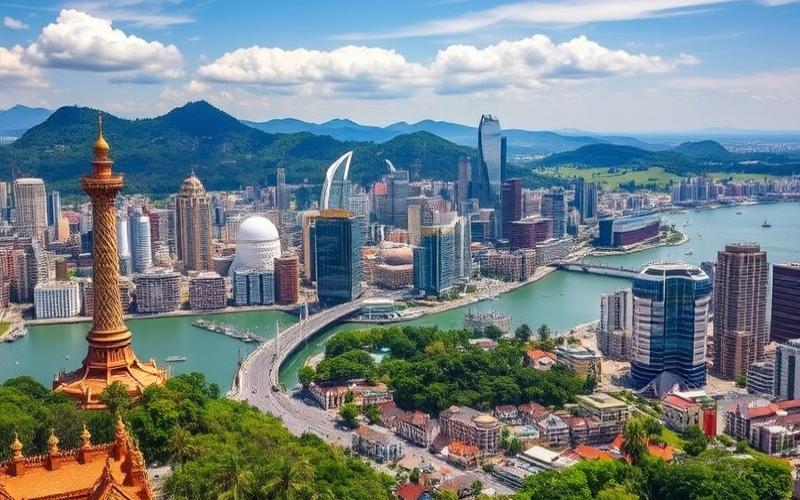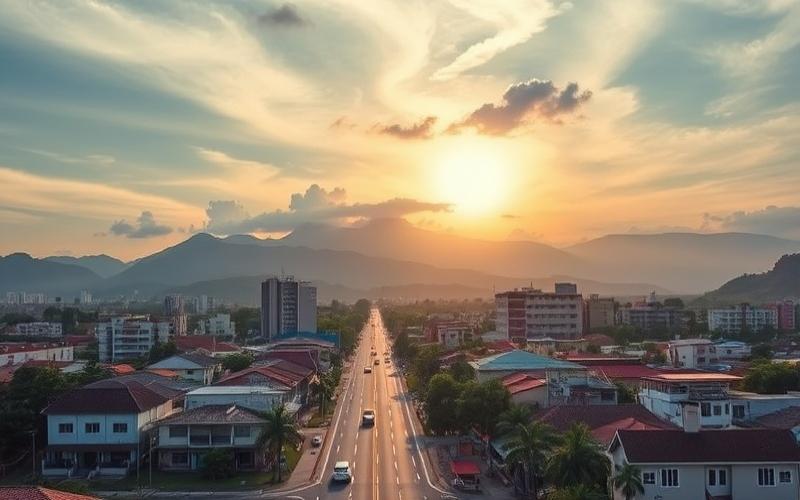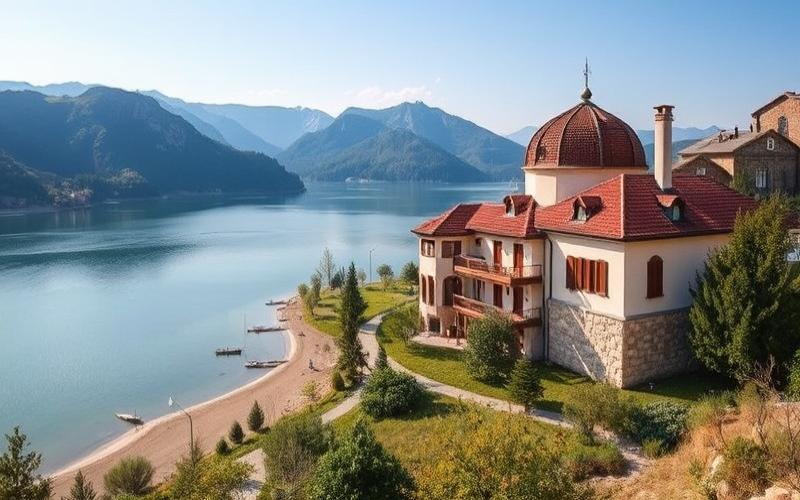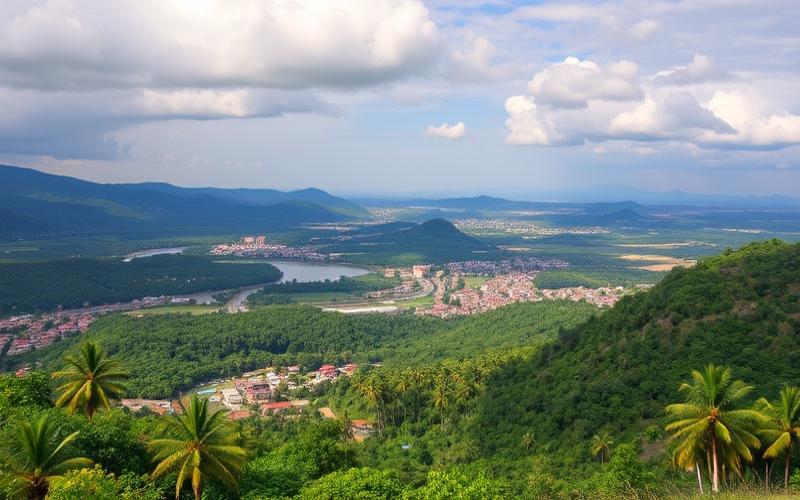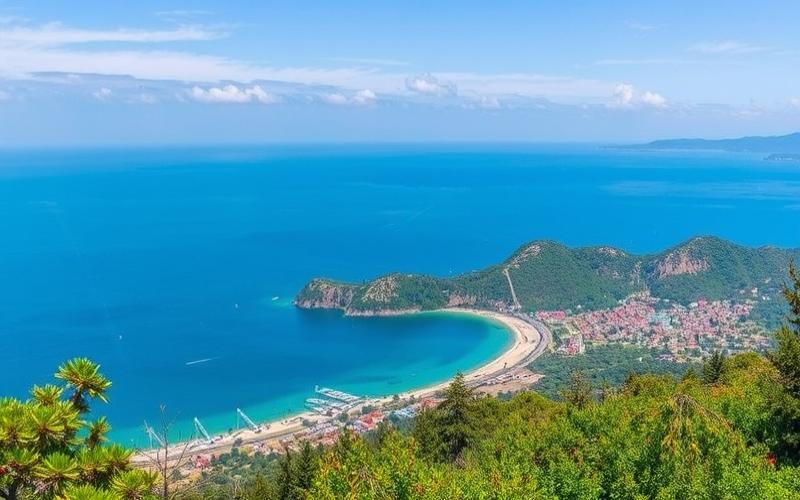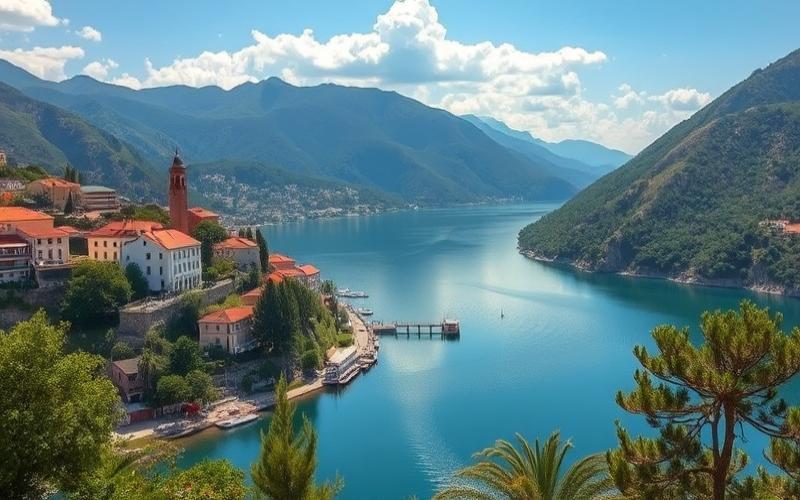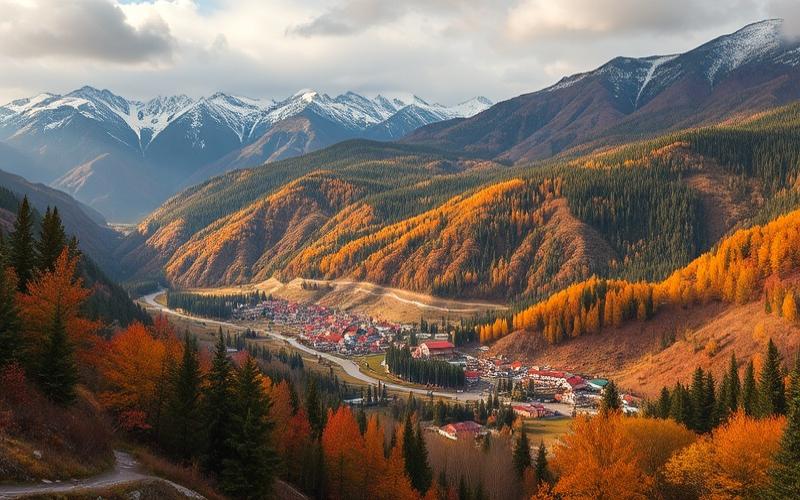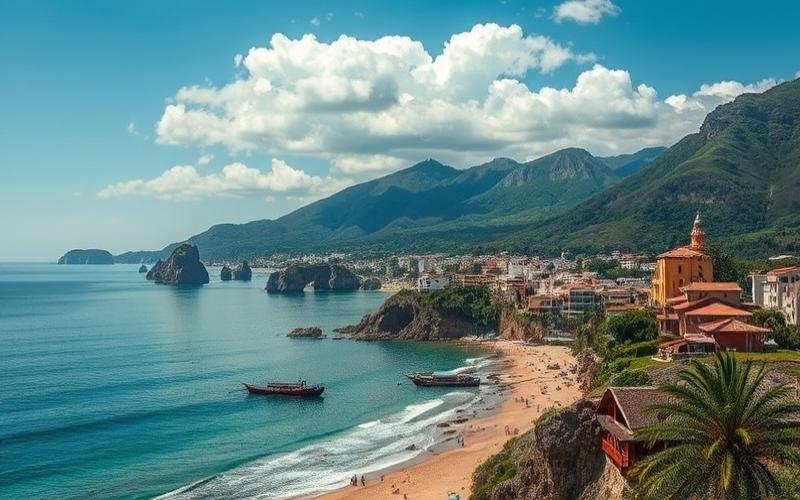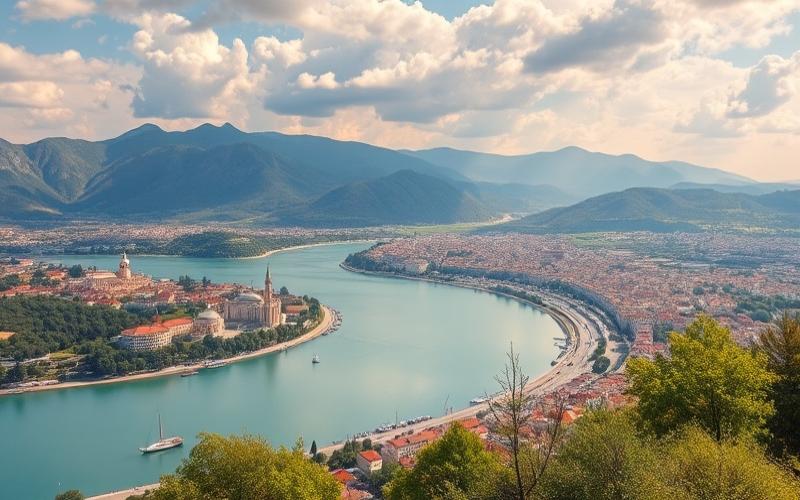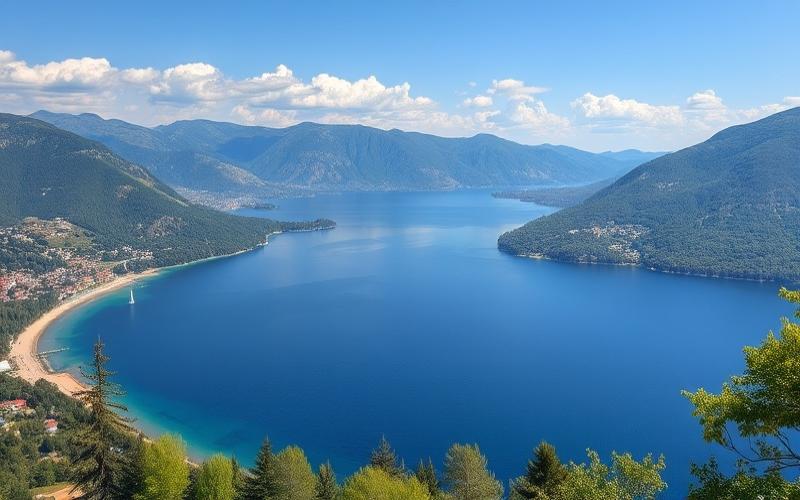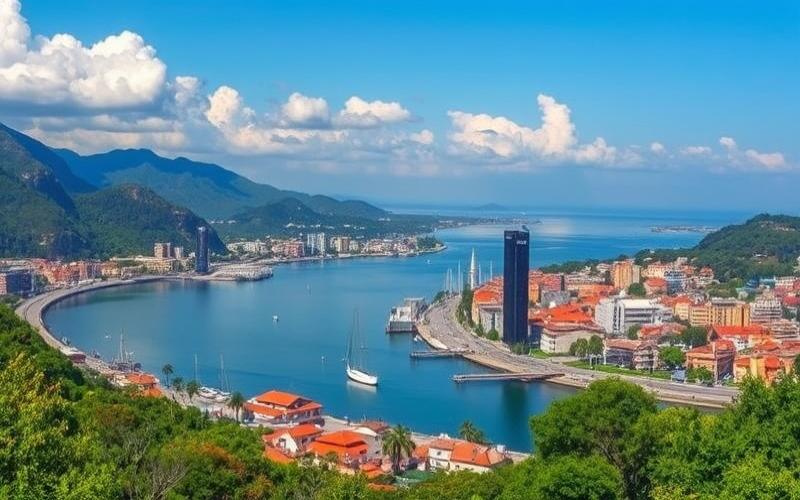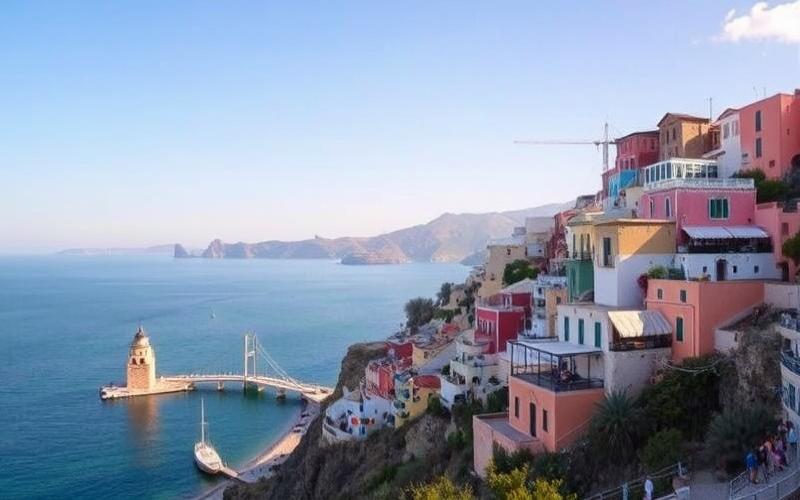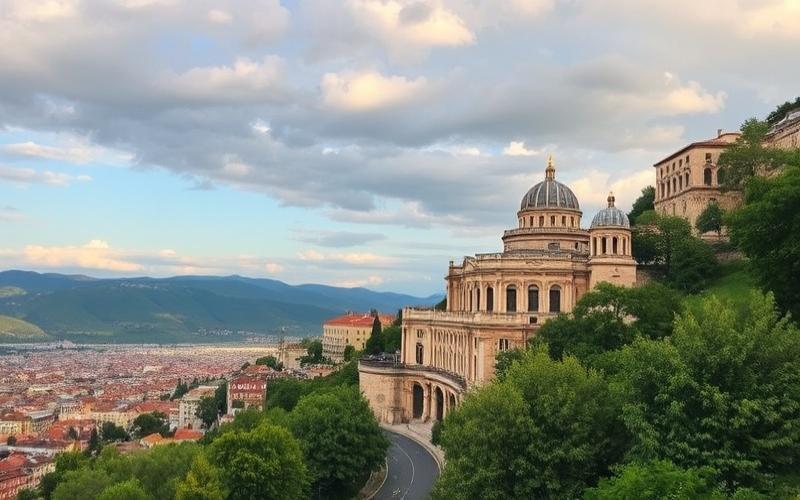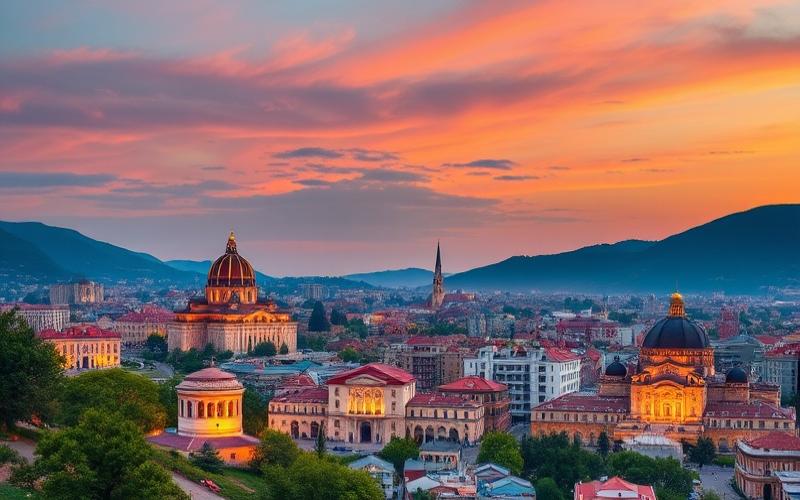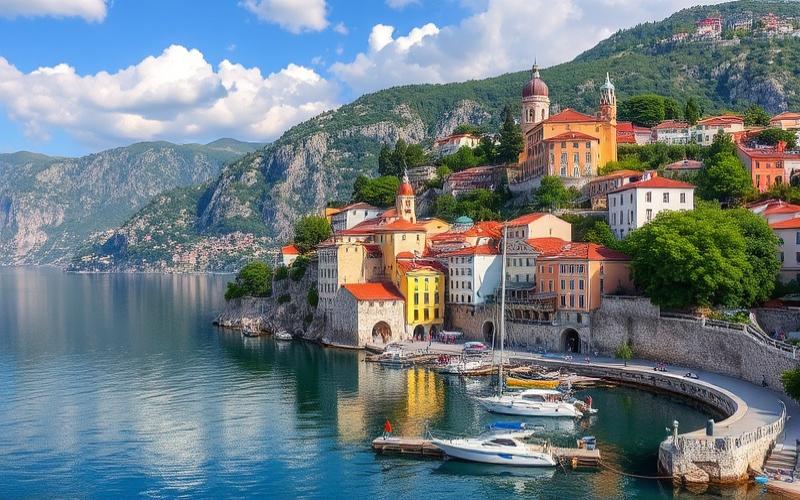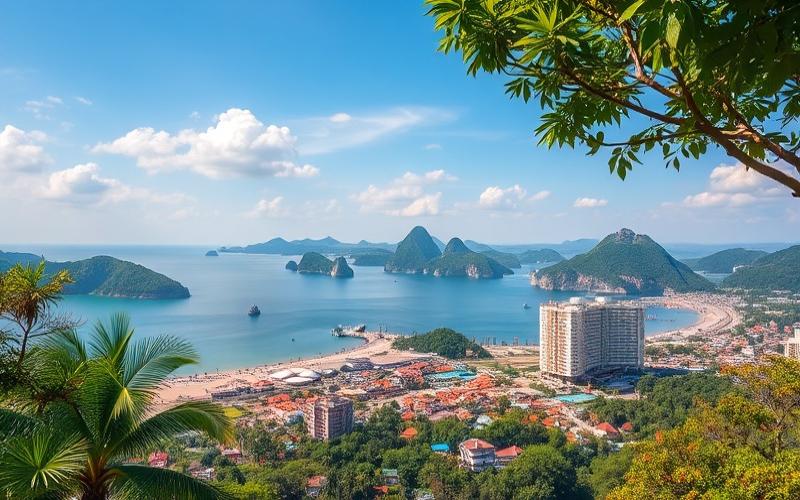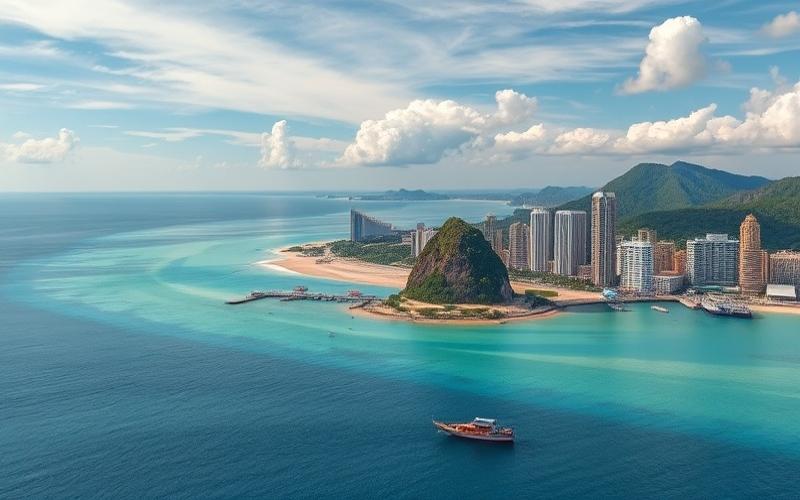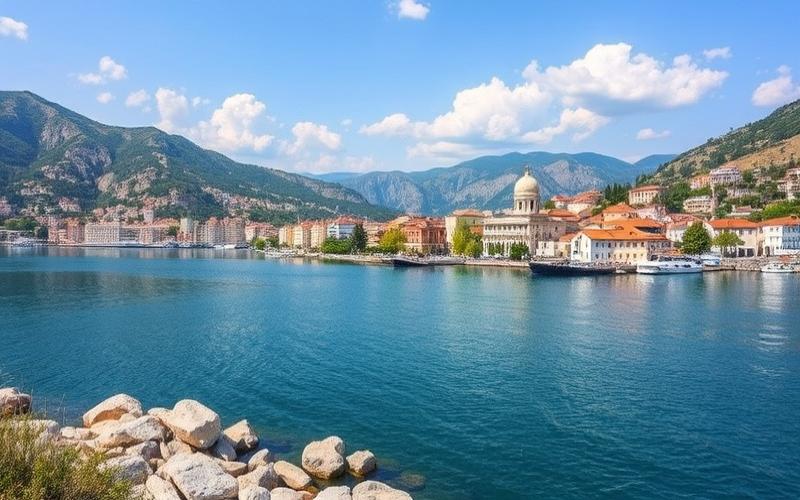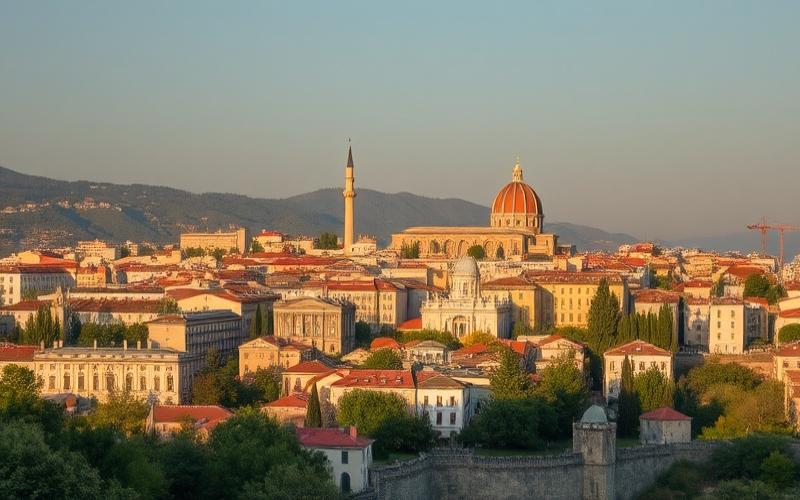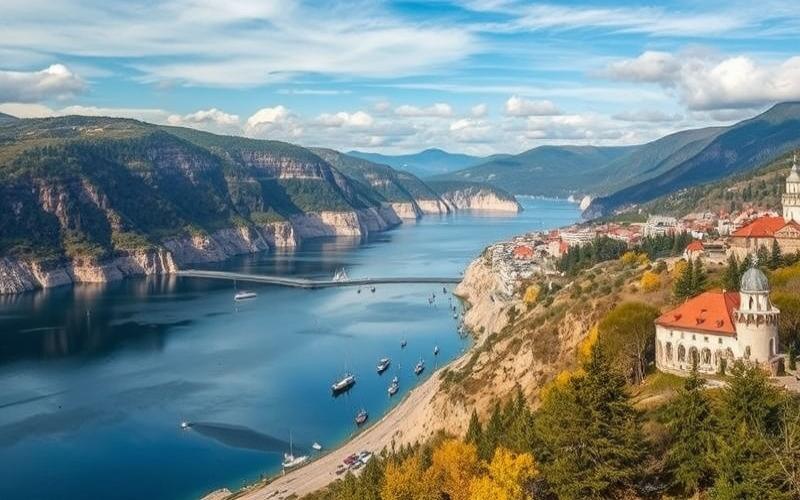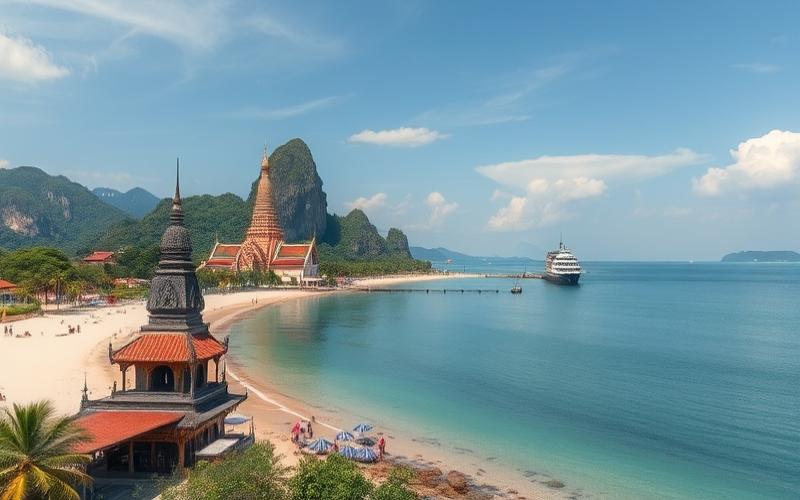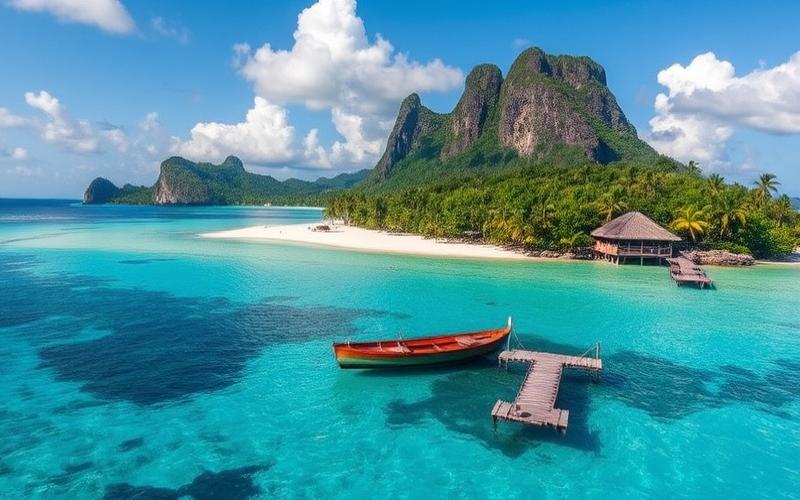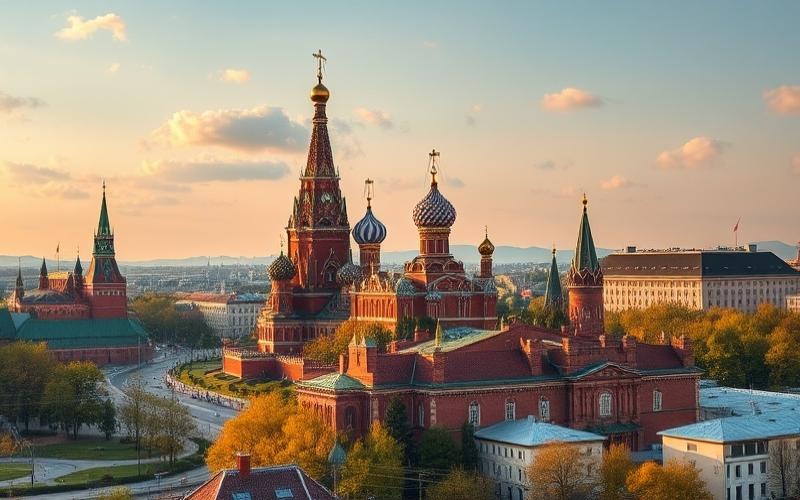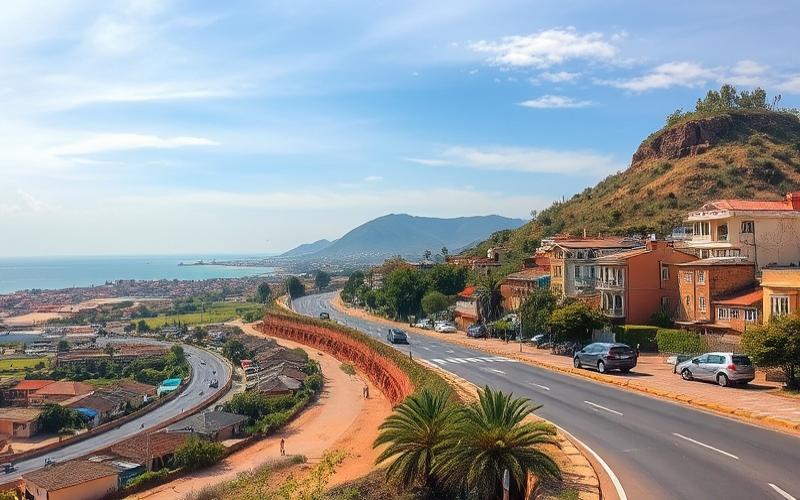
 Published on and written by Cyril Jarnias
Published on and written by Cyril Jarnias
North Macedonia: An Ambitious Urban Transformation
North Macedonia, with its rich historical and cultural heritage, is preparing for an ambitious urban transformation where upcoming urban development projects promise to redefine the country’s landscape.
At the heart of this metamorphosis, bold initiatives encompassing infrastructure and sustainability aim to improve citizens’ quality of life while preserving the unique identity of its cities.
The Revival of Skopje
Projects like the revival of Skopje demonstrate this dynamic, creating a balance between modernity and tradition.
Good to Know:
Skopje, the capital, is a prime example of this transformation, blending contemporary architecture with historical heritage.
Challenges and Commitments
Facing contemporary challenges of climate change and rapid urbanization, these efforts highlight North Macedonia’s commitment to building resilient and innovative urban spaces, while enhancing its appeal and economic development.
Urban Revolution in North Macedonia
The urban revolution in North Macedonia manifests through a series of structural projects and initiatives that transform cities, modernize infrastructure, and improve citizens’ quality of life.
| Project/Initiative | Description | Main Objectives |
|---|---|---|
| Development of Skopje Neighborhoods (Aerodrom, Centar, Karpoš) | Increase in recent real estate projects, modern infrastructure (public transport, roads), high rental demand due to new residents and students | Urban modernization, economic dynamism |
| Urban Renovation of Ohrid & Bitola | Preservation of UNESCO heritage in Ohrid; architectural renovation in Bitola; tourism and cultural enhancement | International appeal, sustainable tourism |
| Green Real Estate & Environmental Standards | Alignment with European guidelines for green construction; government subsidies for green technologies | Carbon footprint reduction |
| Kisela Voda Local Action Plan | Participatory process with civil society for open and transparent urban planning | Inclusive governance |
Main Public Policies:
- Tax Incentives: favorable taxation for foreign investors.
- Administrative Simplification: streamlined real estate acquisition process for non-residents.
- Green Subsidies: state financial aid encouraging integration of ecological practices in building.
Technological Innovations:
– Gradual adoption of smart city solutions in urban transport.
– Introduction of innovative materials in construction to increase energy efficiency.
Major Urban Planning Reforms:
– Restructuring of city centers with expanded pedestrian spaces.
– Enhancement of historical architectural heritage while integrating sustainable contemporary elements.
Major Challenges Encountered During This Urban Transformation:
- Rapid urbanization leading to increased pressure on affordable housing
- Demographic growth concentrated around major urban centers
- Environmental issues related particularly to air pollution and increased need for green spaces
International Collaborations & Funding:
The European Union provides significant assistance in the form of investment – for example, recent European funding amounts to €70 million allocated to the largest national environmental protection project. The European Investment Bank (EIB) also intervenes through several targeted loans aimed at sustainable urban development.
Other international partners involved: UN agencies specialized in sustainable urban development as well as various regional financial institutions participating in priority projects.
Synthetic List of Main Funding Sources:
- European structural funds
- EIB concessional loans
- National subsidies dedicated to green real estate
“The government has implemented attractive subsidies to encourage the adoption of green technologies. These financial incentives aim not only to reduce the carbon footprint but also to position North Macedonia as a regional leader in…”
The Macedonian urban landscape is thus marked by a dynamic combining architectural modernity, responsible innovations, and openness toward Europe.
Good to Know:
The urban revolution in North Macedonia is marked by ambitious projects such as the development of smart cities, where innovative technologies like smart public lighting and eco-friendly public transport systems are integrated. The government is working to modernize infrastructure, improving communication networks and building green public spaces to boost citizens’ quality of life. However, rapid urbanization poses significant challenges, particularly in terms of demographic management and environmental preservation. Bold urban planning reforms are reinventing urban landscapes, but the country must reconcile development and sustainability. To support these transformations, North Macedonia benefits from international collaborations with organizations such as the European Union, which provide essential funding and expertise.
Flagship Projects Reshaping the Future
Major urban development projects are currently transforming North Macedonia, with a dynamic marked by infrastructure modernization, the rise of new residential and commercial areas, and the growing integration of sustainable solutions.
| Project | Location | Main Objective | Partnership/Funding | Innovations and Technologies |
| Modernization of Aerodrom, Centar, Karpoš | Skopje | Residential and commercial real estate development; improvement of public infrastructure | Local initiatives + foreign investors; incentive taxation | Modern infrastructure (smart public transport), eco-districts |
| EU for Clean Air | Skopje, Bitola, Kumanovo, Tetovo | Improve urban air quality; green spaces | European Union & UNOPS (€10M) | Mass tree planting in urban areas; urban heating renovation |
| Structured Parking Solutions | Main city centers | Streamline traffic and optimize parking | Public-private partnerships | Smart parking management; European environmental standards |
Innovative aspects include:
- Massive integration of green spaces in response to chronic air pollution: over 6,000 trees planted in urban centers to absorb CO₂ and improve quality of life.
- Adoption of less polluting public transport through targeted investments in fleet renewal and road network improvement.
- Increased use of digital technology in urban management: automated systems for parking to optimize occupancy and security.
Impact on Local Economy:
- Sustained growth in real estate sector with average price per m² between €1,500 and €2,000 in dynamic neighborhoods like Aerodrom or Centar.
- Attractive rental yield (5% to 7%) stimulating both local and international investment.
- Creation of direct (construction) and indirect jobs through increased local business dynamism.
Environmental Consequences:
- Gradual decrease in urban pollution thanks to European programs.
- Strengthening of natural heritage within cities themselves.
Expected Improvements for Residents:
- Easier access to modern housing meeting European standards.
- Notable reduction in traffic-related nuisances through increased structured parking supply.
- Better public health linked to measurable reduction of fine particles in cities.
Sector Perspectives According to Experts:
“Economic potential remains high as long as the country maintains its efforts on tax attractiveness and its active urban innovation policy.”
“Direct involvement of international actors guarantees not only funding but also technology transfer.”
Additional Concrete Examples:
- In Ohrid, UNESCO listed: strong promotion of sustainable tourism with heritage rehabilitation.
- In Bitola: architectural renovation coupled with cultural revitalization.
Long-Term Goals:
- Build inclusive urbanity where soft mobility, energy efficiency, and shared spaces become the norm.
- Attract foreign talent while retaining local young professionals through a competitive metropolitan framework.
Good to Know:
North Macedonia is implementing several visionary urban development projects, including infrastructure modernization and the creation of new sustainable residential and commercial areas. In Skopje, the Smart City project integrates IoT technology to improve energy management and reduce emissions, while the Skopje East Gate neighborhood development aims to revitalize the local economy with coworking spaces and affordable housing. International partnerships, particularly with European companies, bring expertise in sustainable transport, promoting the introduction of electric bus lines and bike lanes. Additionally, the Vardar Riverfront redevelopment plan enhances urban green spaces, thereby strengthening quality of life. Urban planning experts predict these initiatives will stimulate economic growth while preserving the environment, illustrating a model of ecological and inclusive development for the future.
Impact on Real Estate Market: A New Dynamic
Upcoming urban development projects currently in preparation in North Macedonia promise to profoundly transform the local real estate market. Several types of structural investments are under study or underway, particularly in transport infrastructure, residential and commercial complexes, and environmental modernization of urban spaces.
Main Types of Projects and Strategic Locations:
- Improvement of transport networks in Skopje, with rapid modernization of the Aerodrom neighborhood where residential complexes integrating commerce and services are emerging.
- Development of green infrastructure: massive tree planting, urban heating renovation, air quality improvement (particularly via the “EU for Clean Air” project), creation or rehabilitation of green spaces in major cities like Skopje, Bitola, Kumanovo and Tetovo.
- Modernization of the hydraulic sector, including a new wastewater treatment plant in Skopje that will treat 90% of local wastewater – thus making the city more attractive to investors sensitive to ecological issues.
Comparative Table – Attractive Cities & Profitability
| City | Average Purchase Price (€/m²) | Rental Yield (%) | Key Factors |
|---|---|---|---|
| Skopje | 1,500 – 2,000 | 5 – 7 | Rapid urban development, sustained demand |
| Ohrid | 1,200 – 1,800 | 6 – 8+ | International tourism, UNESCO heritage |
| Bitola | 800 – 1,200 | 4 –6 | Cultural/university potential, downtown renovation |
Expected Effects on Real Estate Market
- New projects should lead to a progressive increase in real estate prices in affected areas (particularly Skopje-Aerodrom), driven by overall improvement in urban attractiveness and increased influx of foreign investors seeking regulatory stability and solid rental yields.
- In tourist areas like Ohrid or cultural ones such as Bitola (where rehabilitation is in full swing), a shift toward high-end real estate for international tourism is already observed.
- Forecasts suggest this dynamic will intensify as these cities fully benefit from European investments aimed at their regional economic integration.
New Opportunities for Investors
- Early acquisition in changing markets (renovated neighborhoods or future commercial hubs)
- Positioning in specialized segments: high-end tourist apartments/student housing/boutique hotels
- Competitive rental yields between 5% and over 8% depending on the city
Impact on Demand:
Local Buyers
- Potential but controlled increase thanks to public policies aimed at containing excessive speculation. Access remains affordable compared to neighboring regional capitals.
Foreign Investors
- Enhanced appeal due to: moderate taxation; growing political stability; simplified procedures for non-residents; prospects related to European process.
Potential Challenges:
- Increased risk of land pressure around new urban hubs potentially causing social exclusion if not anticipated.
- Increased pressure on local resources: sustainable management essential to avoid water/energy shortages or road saturation.
- Absolute necessity for sustainable urban planning integrating ecological solutions so growth rhymes with long-term viability.
Joint efforts between local governments/international investors/European organizations expressly aim for this dual objective: energizing the market while building urban resilience to environmental challenges
Current Data/Forecasts:
- Average purchase price m² (Skopje): between €1,500 and €2,000 with upward trend linked to deliveries planned from end 2025
- Target gross rental yield by segment: up to 8% annually in some renovated areas
- Stated goal by several major municipalities: double/support accessible new supply while promoting neighborhood functional mix
In Summary:
Major opportunities, but success will closely depend on:
- Local institutional capacity to guarantee social inclusion,
- Rigorous anticipation of ecosystem impacts,
- And finally continuous support toward smart urban governance.
Good to Know:
Upcoming urban development projects in North Macedonia, such as transport infrastructure improvements and construction of residential and commercial complexes, are likely to redefine the local real estate market. These developments, located in strategic areas, could create a rise in real estate prices, making the market attractive to local and foreign investors. For example, the planned transport network extension could increase property values in better-served areas. However, this influx of investments could also increase pressure on local resources and pose challenges in terms of sustainable urban planning. According to forecasts, housing demand could grow by 20% within five years, representing an opportunity for real estate developers seeking to meet an expanding urban population.
Invest Today to Reap Tomorrow
Immediate investment in urban infrastructure in North Macedonia is crucial to achieving long-term economic growth and sustainable development goals. Facing rapid urbanization and climate change challenges, these investments not only adapt cities to future needs but also improve citizens’ quality of life while accelerating European integration.
Public and private initiatives are multiplying around major projects:
- Construction of a wastewater treatment plant in Skopje, capable of treating 90% of urban wastewater, thus protecting the environment and meeting European standards.
- Deployment of the national gas transport network (from Gostivar to Kicevo then Sveti Nikole to Veles), essential for energy transition.
- Launch of a pioneering project in the solid waste sector with creation of modern sorting centers, new sanitary landfills, and transfer stations.
- Accelerated development of renewable energies, particularly through conversion of former coal mines into photovoltaic plants (Bitola & Oslomej) so that 82% of net emissions are reduced before 2030.
| Project | Main Objective | Expected Impact |
|---|---|---|
| Skopje Treatment Plant | Urban sanitation | Pollution reduction, health |
| National Gas Network | Energy transition | Energy security |
| Sorting & Recycling Centers | Sustainable waste management | Green jobs, urban cleanliness |
| Bitola Solar Plants | Clean energy production | Energy sector decarbonization |
International investments, particularly those from European grants or multilateral funding (EIB, EBRD), play a driving role. They facilitate technology transfer and accelerate modernization according to European standards: this also attracts more private investors eager to accompany this regional dynamic.
Expected benefits for residents are multiple:
- Direct or indirect creation of skilled jobs thanks to public/private construction sites
- Visible improvement in urban framework: easier access to clean water, more efficient transport
- Strengthening of local economic fabric through potential arrival of new businesses
- Real estate appreciation around modernized hubs
Community engagement remains central: involving citizens and stakeholders from the design phase ensures each project truly meets local needs. Active support also ensures social ownership essential to sustain these transformations.
Some figures illustrate the potential:
Recent mobilization: over €100M allocated to liquid energy plan + new networks; stated goal: net GHG reduction (-82%), massive renewable energy development (+1.7 GW installed planned before 2030).
Thus,
‼️ Investing today in modern infrastructure,
guarantees tomorrow a healthy environment,
a dynamic economy
and a society resilient to future challenges ‼️
Good to Know:
Investing today in North Macedonia’s urban infrastructure is crucial to ensuring sustainable economic growth, supported by ambitious infrastructure modernization goals. Many projects such as transport network expansion, construction of modern buildings, and creation of eco-friendly public spaces are underway, supported by public and private initiatives. International investments play a key role, promising to transform regional urbanization with significant impacts on the local economy. Long-term, these investments should create numerous jobs, improve quality of life, and attract new businesses, while highlighting the need for strong community engagement for their success. Recent economic forecasts indicate these projects could increase local GDP by 3% by 2030, thus demonstrating tangible benefits to come.
Disclaimer: The information provided on this website is for informational purposes only and does not constitute financial, legal, or professional advice. We encourage you to consult qualified experts before making any investment, real estate, or expatriation decisions. Although we strive to maintain up-to-date and accurate information, we do not guarantee the completeness, accuracy, or timeliness of the proposed content. As investment and expatriation involve risks, we disclaim any liability for potential losses or damages arising from the use of this site. Your use of this site confirms your acceptance of these terms and your understanding of the associated risks.

